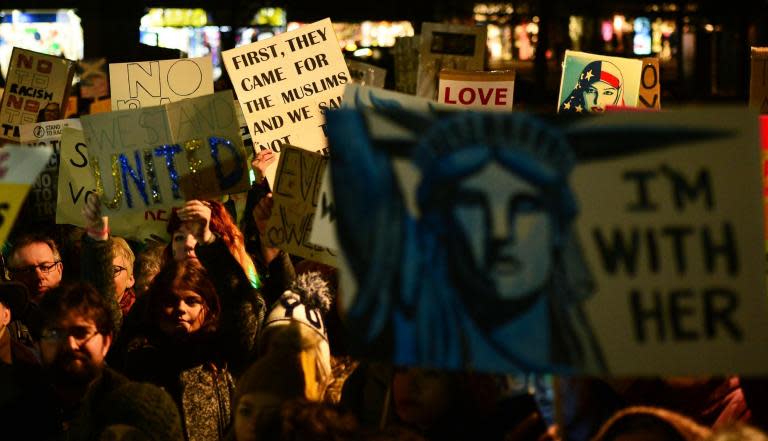Supreme Court to decide if Trump's so-called Muslim ban is legal
The US Supreme Court has said it will decide the legality of Donald Trump’s so-called Muslim travel ban – a case that will likely be an examination of his presidential powers.
After legal challenges to a series of measures announced by the President in the form of executive orders, the court is due to begin hearing arguments about the merits of his ban and the authority for issuing them.
While, Mr Trump’s first order initially related to six Muslim-majority countries, challenges to those restrictions and concern that he was hurting people who had helped US troops in Iraq, the ban currently involves Iran, Libya, Syria, Yemen, Somalia, Chad and North Korea, and some people from Venezuela.
BREAKING: SCOTUS agrees to hear Trump v. Hawaii, a challenge to the latest iteration of Trump’s travel ban pic.twitter.com/5d239H7gHM
— Steven Mazie (@stevenmazie) January 19, 2018
The court will start hearing arguments in April and intends to issue a final ruling in June on an issue that has been repeatedly struck down by lower courts.
Mr Trump came to office vowing to introduce such a ban and almost immediately after he entered the Oval Office he announced his first, a measure that targeted seven countries and triggered chaos and protests across the US.
The next version, unveiled in March, dropped Iraq from the list of covered countries and made it clear the 90-day ban covering Iran, Libya, Somalia, Sudan, Syria and Yemen did not apply to those travellers who already had valid visas. It also got rid of language that would give priority to religious minorities.
A third version would be permanent, unlike the other two, and the Associated Press said the Trump administration had argued it was the product of a thorough review by several agencies.
In December, the Supreme Court said it would allow Mr Trump’s ban go into effect while while legal challenges by the state of Hawaii and others continued.
As a candidate, Mr Trump promised “a total and complete shutdown of Muslims entering the United States”.
Since entering the White House, he has rescinded protections for hundreds of thousands of immigrants who were brought into the country illegally as children, sought to ramp up deportations and pursued new measures restricting legal immigration.


